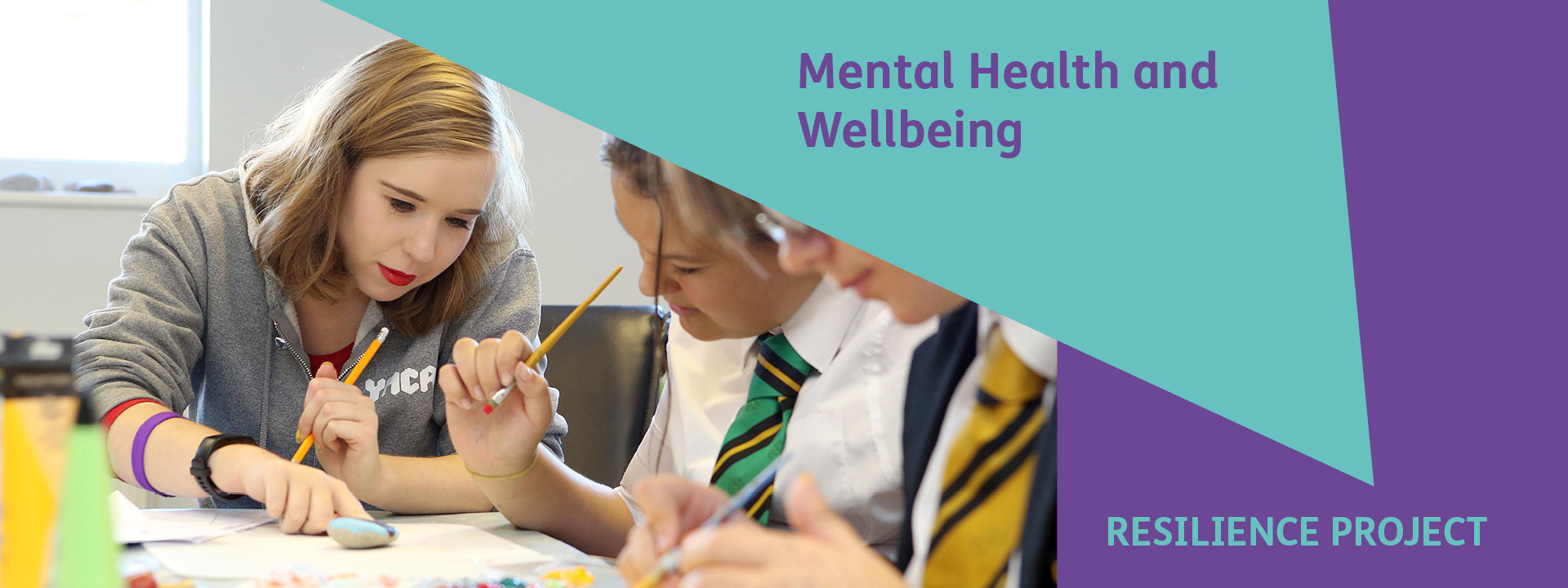Our mental health affects how we think, feel and act. It influences how well we relate to other people, the choices we make and how we handle stress. Many different factors can contribute to our mental health, from family history to the events we have experienced in life.
At YMCA Exeter we are committed to helping children and young people build resilience so they can cope during mental health challenges and experience fullness of life in the future. Across our projects, including supported accommodation, youth and schools work, and work with offenders, we increasingly do this by running mental health activities that improve our day to day wellbeing, develop our support networks and bring individuals out of crisis.
On this page you will find advice about the coping strategies we recommend for looking after yourself, as well as guidance about what to do in a mental health crisis.
Looking after myself
There are some really simple steps we can all do to improve our mental wellbeing and feel more positive about life. The NHS call them the ‘5 steps to mental wellbeing’ and we recommend giving each of them a try.
- Connect – Meet up regularly with people in your life. They could be your family, friends, colleagues and neighbours. Spending time developing these relationships is a great first step.
- Be active – Walk, run, dance, cycle, boogie… Whatever your choice, staying active and exercising will increase your endorphins and make you feel good.
- Keep learning – Learn new skills, rediscover old hobbies and trying new things will give you a real sense of achievement and boost your confidence.
- Give to others – Putting other people before yourself can be incredibly rewarding. Whether a smile, a kind word or a volunteering commitment supporting your community can be incredibly rewarding.
- Be mindful – Take notice of what is happening around you. Noticing your personal thoughts and feelings as well as those things surrounding you in nature can positively change the way you feel about life and how you approach challenges.

There are many other habits we believe can be really beneficial to your daily wellbeing.
- Eat healthy food at regular mealtimes
- Drink lots of water
- Talk about your feelings to someone you trust
- Ask for help
- Don’t compare yourself to others
What to do in a crisis
- If you are struggling with your mental health and don’t feel you can get through the night alone, call 999 or take yourself to your local A&E.
- If you are struggling and don’t feel you can get through the next 24 hours, then contact your GP or go to A&E.
- If you are feeling suicidal or you are worried about someone else, then contact your GP or call the Samaritans on 08457 90 90 90 anytime, 24/7.
Other useful places that give a listening ear are:
- 1-2-1 online counsellor chat run by Childline for children and young people up to the age of 19
- Out of hours mental health support for anyone aged 16+ at The Moorings, Devon (available in Exeter, Barnstaple and Torquay)
- For adults, YOUNGMINDS, offers confidential online and telephone support to anyone worried about the emotional problems, behaviour or mental health of a child or young person up to the age of 25. The helpline is 0808 8025544 and is open Monday – Friday, 9am – 4:30pm
Our Resilience Project
Our Resilience Project is enhancing the mental health and wellbeing support we can offer for children and young people in Exeter and East Devon. By enabling children and young people to build their personal resilience at the earliest possible stage we are ensuring they all have the utmost ability to thrive in adult life.
Resilience uses four keys ways to support mental health and wellbeing:
- Social prescribing and community connecting: Giving people time, focusing on ‘what matters to me’ and connecting them to existing community groups for practical and emotional support. This is delivered in partnership with Wellbeing Exeter.
- Targeted short-term clinical intervention: CBT and evidence-based interventions for mild to moderate anxiety, low mood and behavioural difficulties. This is delivered in partnership with the University of Exeter.
- Community groups: Local support groups with socials, activities and spaces to talk. This includes running a weekly lunchtime session in St James’ School and drop-in brunch sessions across our housing projects in Exeter.
- Therapeutic activities: Including horticulture; counselling; music; movement and art as a means of resolving problematic behaviours, issues, beliefs and feelings.

Get in touch

Martha Hancock, Wellbeing Project Coordinator
To find out more and to make a referral, please contact us by emailing wellbeing@ymcaexeter.org.uk or by calling on 01392 410530 and asking for Martha.


